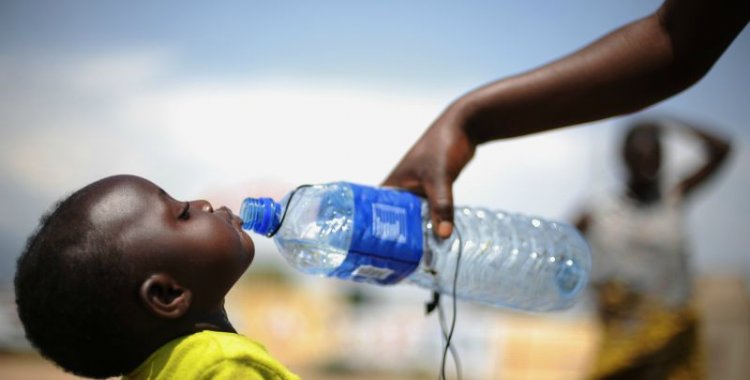The partnership was launched on Thursday in Bengo province by the Química Verde Lab association and the French embassy in Luanda, which sponsored the project "Minha Água, Minha Vida" in a country where the United Nations (UN) estimates that more 50 percent of the population does not have access to an improved source of water.
Under this project, running since 2016, the non-governmental organization (NGO) wants to improve water quality and hygiene in deprived rural communities, which often use water from wells, standing water or ponds for their supply, António Adelino Kilala, project manager at Química Verde Lab, explained to Lusa.
To this end, it distributes a water filter called a biofilter to families, schools and health centers, which improves water quality without using chemicals, electricity or other technologies.
Built in concrete for around 20 thousand kwanzas, the biofilter uses layers of silica, that is, "extremely fine sand", which is washed and disinfected and through which the water to be filtered passes.
"Water treatment is as if it were a natural process. As the water passes through the sand layer [by force of gravity], the contaminants, the impurities, are retained above because they have a larger granulometry than the spacings left by the grains of sand," said Kilala.
The process "removes the color, smell and taste of the water, as well as removing the microbiological load", namely pathogens capable of causing disease.
As it does not need electricity to function and as maintenance can be carried out without the use of specialized technicians, the biofilter is suitable for remote rural areas, where these resources are often not available, explained the official.
To date, the NGO has distributed more than 2,000 biofilters to as many families, in addition to two hundred devices in schools and medical centers in the provinces of Luanda, Bengo, Malanje, Cuanza Sul, Cuanza Norte and Benguela.
In addition to filters, the project has three other pillars, including training people on hygiene and basic sanitation, teaching them how to produce soap to improve hygiene and guaranteeing an alternative livelihood through the marketing of the soap they produce, and education on menstrual hygiene to facilitate the integration of girls into schools.
With the partnership now announced with the French Embassy, which donated 3.65 million kwanzas, the association hopes above all to increase the impact and visibility of the project, with the aim of being in all provinces within three years, said the responsible.
"[We want] to do full coverage at the level of Angola so that no one is left behind when it comes to access to quality water," he explained.
Especially because on the part of the Angolan authorities the support "is still a little shy".
After some insistence from Química Verde, the local authorities authorized the NGO to intervene, but Kilala argues that they could do more: "access to communities, access to information, involvement both in terms of money and human resources", he exemplified.







